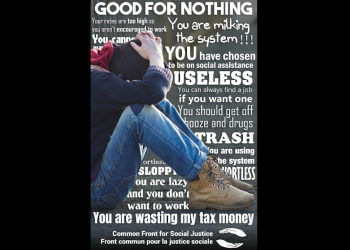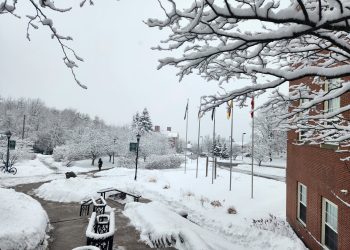Canada’s Immigration Minister, Marc Miller, announced the implementation of a national cap on the intake of international students in February, alongside a series of other regulatory measures aimed at reducing the influx by 35 per cent over the next two years.
The decision seeks to address concerns surrounding the sustainability of temporary residence levels and the need to mitigate further growth in international student numbers.
While the announcement underscores the government’s efforts to manage immigration inflows, it has affected prospective students like 21-year-old Colombian, Marisol Lantero.
“I was admitted to Carleton University for the upcoming academic year, and the news of the cap has deeply affected my plans,” Lantero shared. “Canada was my dream destination for a better education, but now I’m unsure if I’ll be able to pursue my studies there.”
The national cap, expected to result in approximately 364,000 approved study permits for 2024, will not apply to graduate-level students, including those pursuing master’s and doctoral degrees.
“The cap adds another layer of uncertainty to an already stressful process. I fear the impact it will have on my ability to secure a study permit and pursue my academic aspirations in Canada,” said Lantero.
This measure follows a series of regulatory curbs announced in December, including doubling the financial requirements for international students seeking study permits.
“It’s insane, no one has that amount of money just laying around,” said Lantero. “I feel like international students are taking the blame for a crisis that is not even our fault in the first place.”
For 2024, international students will need to show they have $20,635, in addition to funds for first year tuition and travel costs.
Alberto Chavez, a current International student at St. Thomas University, shares similar concerns regarding the increase in international tuition fees.
“The recent hike in international tuition fees has made it increasingly challenging for students like me to afford education in Canada,” Chavez stated. “As an international student, I’m already facing financial constraints, and the idea of further increases adds to the burden.”
The federal government has linked growing numbers of international students to strained housing, health care and other services.
“International students are not the ones buying up rental properties and increasing rents,” said Nomaan X, a post-doctoral researcher based at the University of New Brunswick and spokesperson for the New Brunswick Coalition for Tenants Rights.
Aditya Rao with the Madhu Verma Migrant Justice Centre agrees. “International students are victims of the housing crisis, not perpetrators of it.”
Miller emphasized the application will vary across provinces, with provinces experiencing unsustainable growth in international student intake facing more significant reductions.
He highlighted the importance of fairness in allocating cap space by province based on population, aiming to address regional disparities in student intake.
New Brunswick will have 5,600 spots for international students in the upcoming academic year.
“Higher education should be accessible to all, regardless of nationality or financial status. Why do I have to choose between one or the other?” Chavez said.
The government also announced changes to the Post-Graduation Work Permit Program, limiting permits to specific programs such as master’s, doctoral, medicine, and law.
”It’s just tough, we worked so hard to be here. It’s sad to see so many international students struggling and questioning their future in Canada,” added Chavez.
Many students such as Chavez have been forced to crowdfund the rest of their studies to finish their degrees.
“These fundraisers are created out of desperation because the circumstances have outgrown us, we can’t find any other viable solutions to the increasing tuition fees,” said Chavez.
As Canada grapples with the implications of the cap on its higher education sector and immigration landscape, the voices of prospective students underscore the human dimension of policy decisions, reflecting the anxieties and uncertainties faced by individuals navigating Canada’s immigration system.
Ana Cañarte is a St. Thomas University student doing her human rights placement with the Madhu Verma Migrant Justice Centre.







![‘It would pay for itself’: Anti-poverty activists push for tangible solutions amid budget surplus [video]](https://nbmediacoop.org/wp-content/uploads/2024/04/Screenshot-2024-04-24-at-17.38.52-120x86.jpg)


